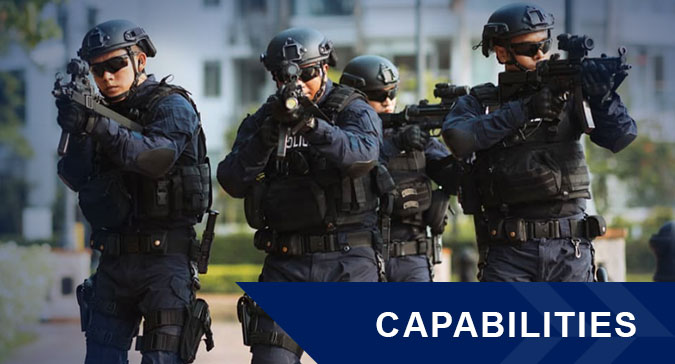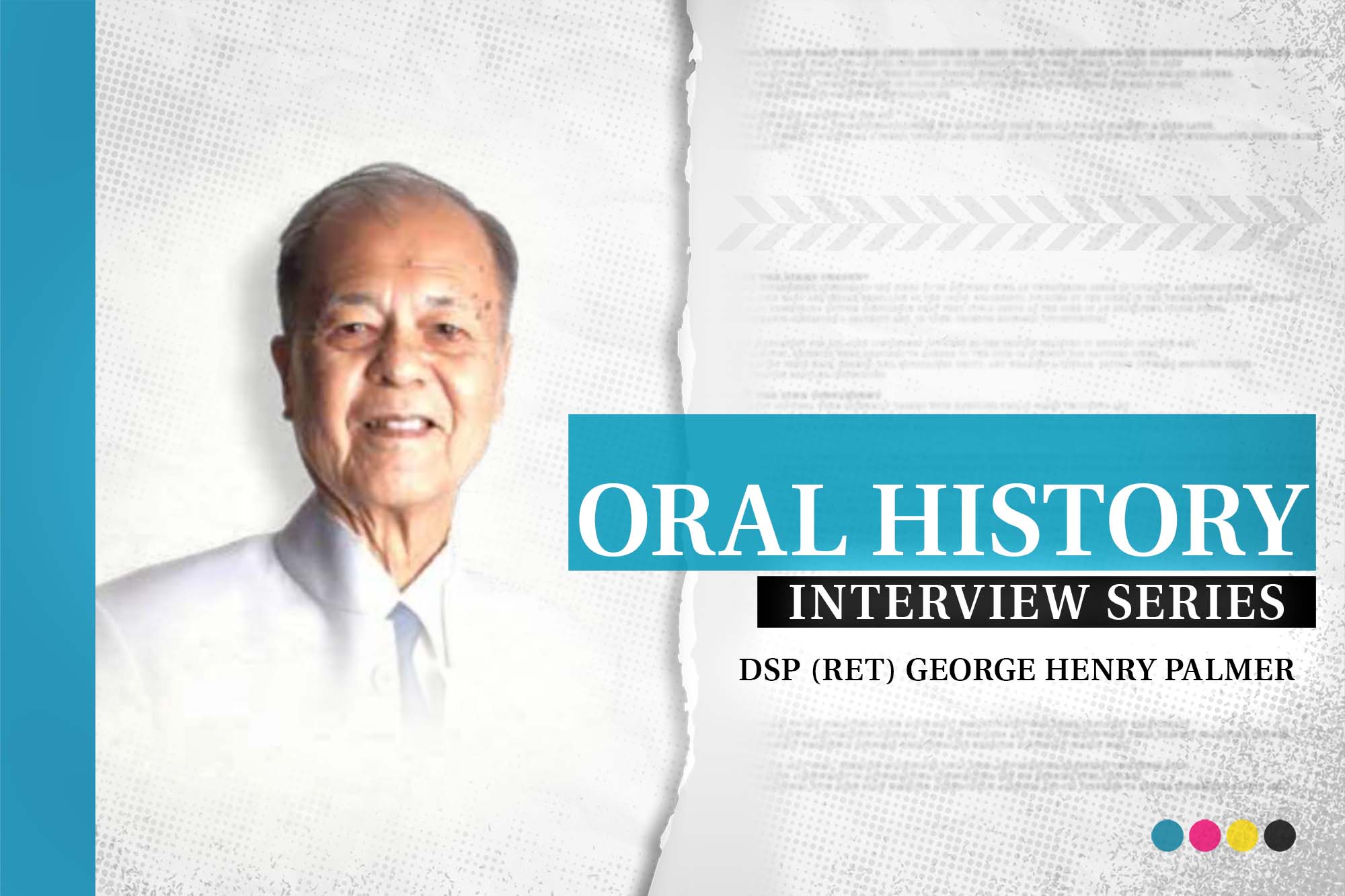
Some call him the father of Crime Prevention. DSP (Ret) George Henry Palmer’s pioneering efforts paved the way for Singapore’s community policing and crime prevention strategies.
By: Christabelle Lim and Low Ee Ching
The decades following Singapore’s Independence in 1965 were turbulent. The Singapore Police Force (SPF) faced a rising tide of criminal activities, especially in gang-related and organised crime. Against the backdrop of a rapidly modernising city-state, the SPF had to evolve and rethink its policing strategies.
To better address the needs of residents, by the late 1970s and early 1980s, the SPF moved towards a stronger emphasis on community policing. These efforts were led by then Assistant Superintendent of Police (ASP) George Henry Palmer and eight energetic officers who’d serve as the pioneers of community policing in Singapore.
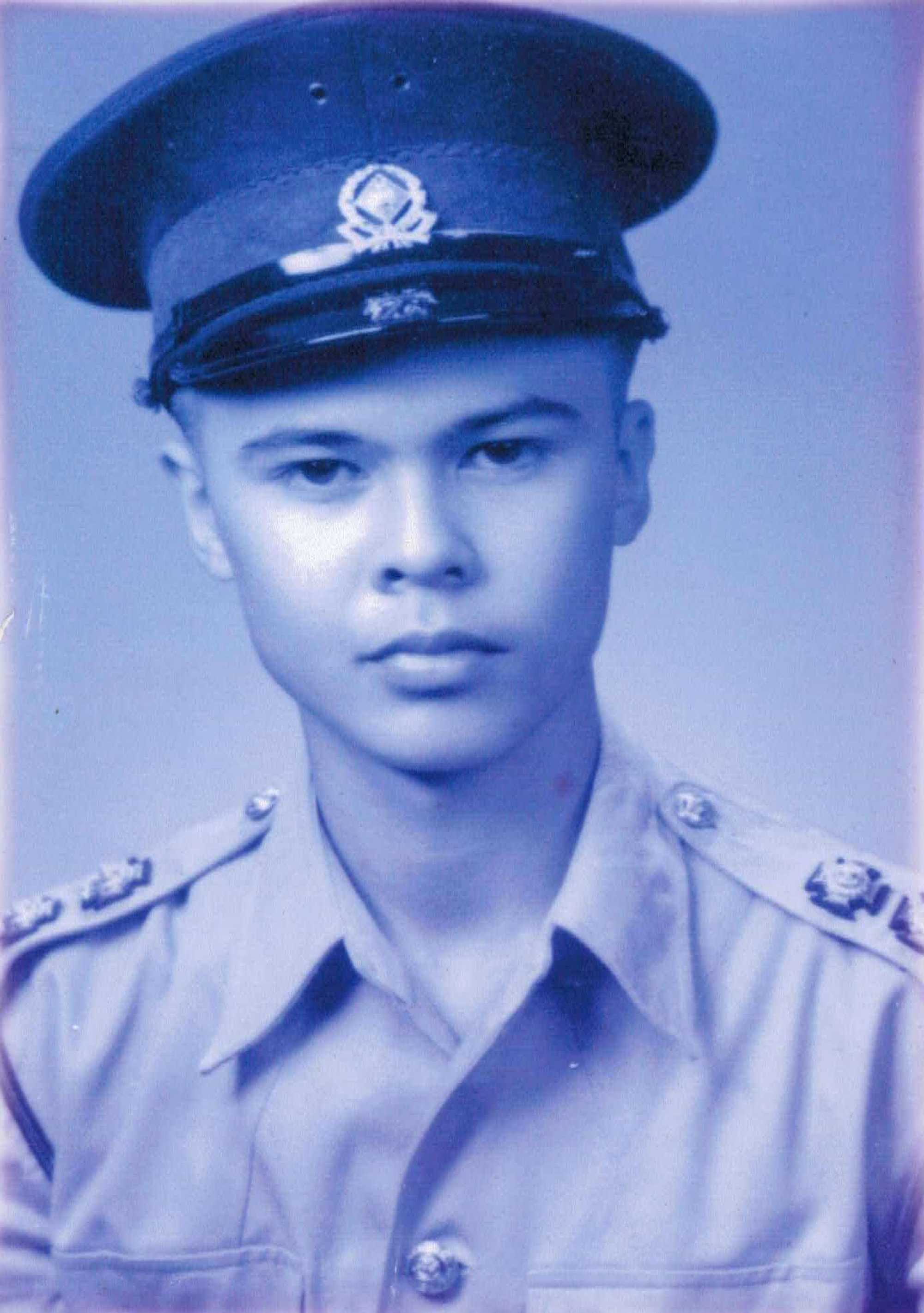
On Joining the Force
“I was then a young schoolboy from Kuala Lumpur, and studied at St John’s Institution. During the Japanese Occupation, I was a little boy, working at the railways. My father, he was put in jail. He was of European, English background. My time at the railways taught me to be independent.
“When I finished school, I wanted to join an institution where I could survive on my own. I joined the SPF, because for one – they gave me barracks to stay in, gave me my next meal; and secondly, I think deep down inside, I’ve always had this inclination to help. I always had the passion to help people.
“Thus in 1952, I joined the SPF as a Probationary Inspector, with my first posting in Traffic Police.”
This was the first of many exciting assignments for the young officer. After stints at various Land Divisions, postings in Radio Division, Police Training School and Criminal Investigation Department, DSP (Ret) Palmer found himself back in a Land Division – as the Administrative Officer of Orchard Road Police Station, dealing with administrative and manpower matters.
This was a role he excelled in. After serving on several high-profile committees overseeing subjects such as National Service implementation, DSP (Ret) Palmer’s administrative ability and drive saw him receiving the opportunity to be sent to Staffordshire in the United Kingdom in 1976 to receive higher-level training in crime prevention work.
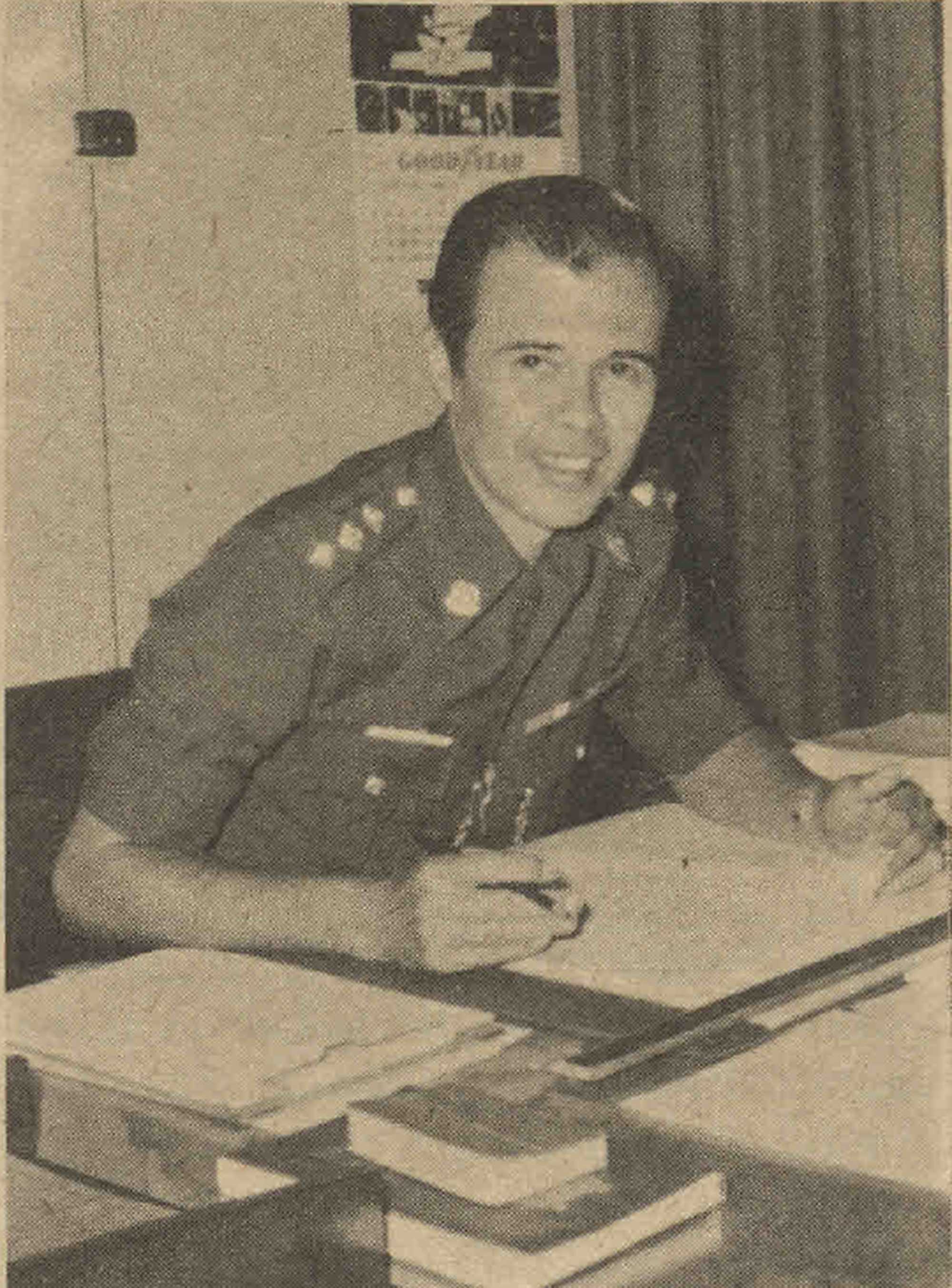
Upon his return, he trained eight officers who would then be deployed to the eight Land Divisions for crime prevention work at the newly formed Crime Prevention Branch in the Criminal Intelligence Unit, under the purview of the Criminal Investigation Department.
On Crime Prevention Work
“To me, it was a passion. The crime rate published by the Police will tell you whether crime is up or down, but how much crime you have prevented – you can’t measure. That’s why some say crime prevention work is not a glamorous job.
“Besides raising awareness, we were also well-trained in the latest security devices such as locks, alarm system and [to] conduct security surveys of buildings and recommend corrective measures. I could go to your house and identify the crime risks in your house, from your windows to your doors, ceiling, backyard, and recommend what physical measures you needed to take.
“We used to go to the Community Centres and schools, where my Crime Prevention officers would hold crime prevention exhibitions and give them pamphlets on crime prevention. But it was hard work, it was daily; every person we spoke to was one little step forward.”
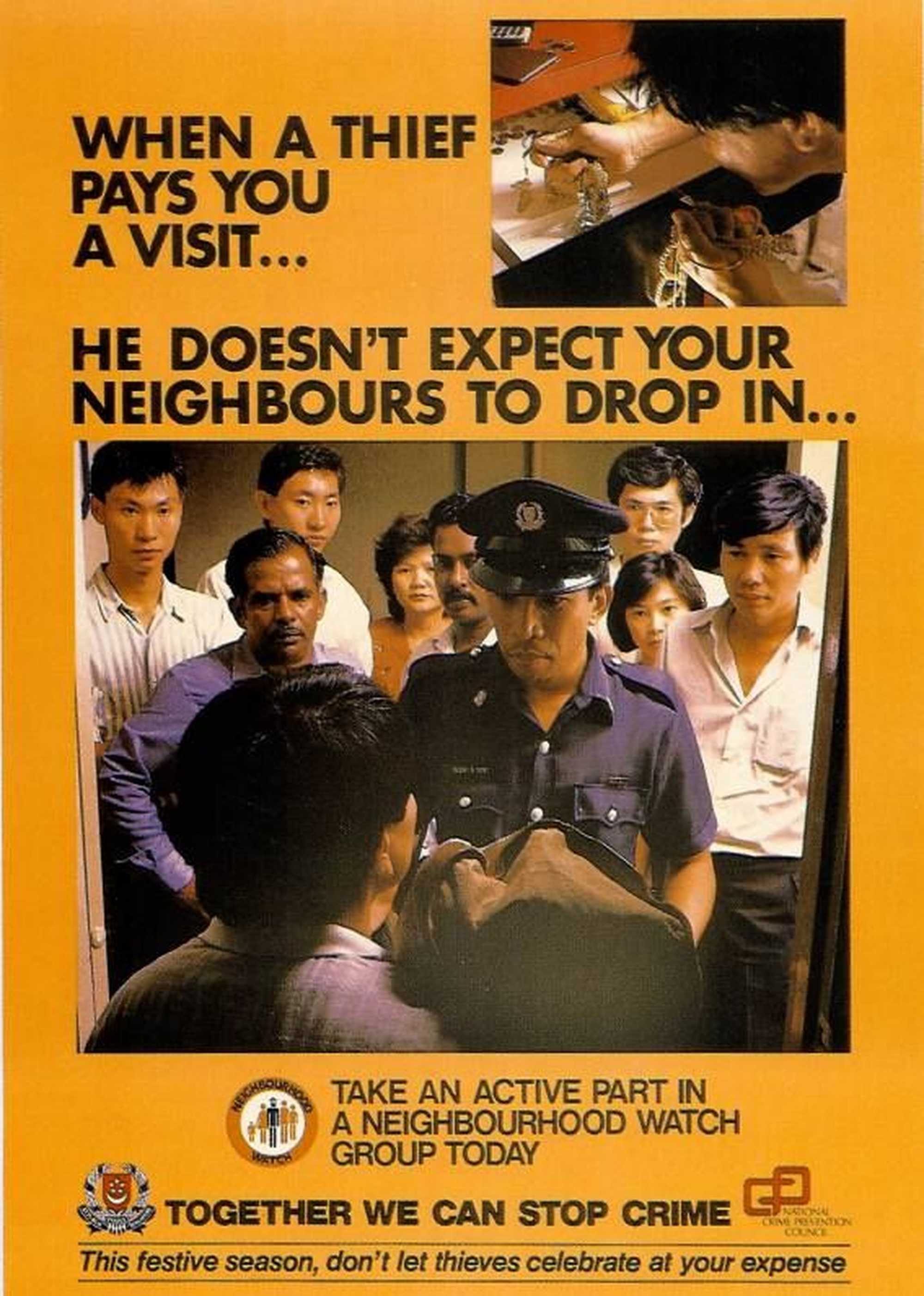
In the late 1970s, the SPF’s crime prevention strategy continued to grow. The Crime Prevention Unit with the eight pioneering officers was expanded to become a full-fledged department in 1981. The National Crime Prevention Council (NCPC) was also formed that year, with DSP (Ret) Palmer serving as its first Executive Director until he retired in 1985. The NCPC continues to be one of the SPF’s key partners in raising crime prevention among the public.

The SPF’s community policing efforts have proven effective in increasing safety, reducing crime rates and improving public trust. Today, Community Policing officers from Neighbourhood Police Centres conduct various outreach initiatives such as school talks, community events in Community Centres, house-to-house visits and neighbourhood patrols to foster community engagement and build strong connections between the Police and residents.
While the times may have changed, the spirit of community policing and crime prevention espoused by DSP (Ret) Palmer remains as relevant and important as ever.
Oral History Interview Series
Our officers have incredibly interesting careers, and for the past decade, our team has been meeting retired officers of all ranks to uncover their stories and learn from them. Through these sessions, we built a rapport and deeper respect for the men and women who overcame challenges to keep Singapore safe. We hope this series will inspire officers in their service and carry on the legacy of those who have gone before them. – Metta Yang, Head, Heritage and Social Responsibility Branch, Public Affairs Department



